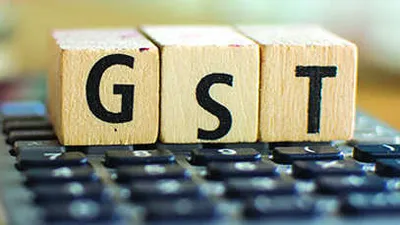Science
Pharmaceutical Industry Pushes for GST Reform Amid Tax Cuts

The pharmaceutical industry is calling for significant reforms following the Goods and Services Tax (GST) Council’s decision to reduce tax rates on certain products. The tax on pharmaceutical and nutraceutical formulations has been cut from 12 per cent to 5 per cent, while taxes on specific critical drugs have been reduced to zero. Industry representatives regard this move as a step towards making medicines more affordable but stress that further adjustments are necessary to address the existing inverted duty structure.
Despite the reductions, raw materials essential for drug production, such as active pharmaceutical ingredients and excipients, remain taxed at 18 per cent. This discrepancy has created an inverted duty structure that imposes financial strain on manufacturers, particularly impacting micro, small, and medium enterprises (MSMEs). According to Sanjay Sharma, spokesperson for the Himachal Drug Manufacturers Association (HDMA), the current system leads to accumulated input tax credits, complicating cash flow for manufacturers.
“While the GST on formulations and nutraceuticals is now 5 per cent, the higher tax on raw materials creates cash flow challenges. Many MSMEs are struggling with capital stuck in refunds,” Sharma explained. Dr. Rajesh Gupta, president of HDMA, echoed these concerns, stating that faster provisional refunds are essential to relieve manufacturers from financial pressure. “The industry is facing delays, which results in capital being tied up,” he said.
The new compliance requirements under the revised Schedule M are adding to the industry’s financial burdens. Sharma pointed out that significant investments are needed to meet these standards, with GST implications compounding the issue. He noted that many MSMEs have claims ranging from Rs 2 crore to Rs 3 crore that remain unresolved due to the inverted duty structure.
Manufacturers also face challenges with existing stock, as the reduction in GST could impact their profit margins. “With the cut in GST, manufacturers will lose profit on stock already produced under the previous tax rate,” another industry representative commented. Companies must navigate the complexities of price revisions while adhering to both GST regulations and the Drug (Price Control) Order, which governs pricing for over 900 essential drugs.
The Drugs (Prices Control) Order limits the maximum prices for essential medicines, raising concerns among manufacturers about their ability to adjust prices following the tax changes. Industry associations, including Laghu Udyog Bharati and the Federation of Pharmaceutical Enterprises, have urged the government to address these critical issues.
While the GST Council’s recent tax cuts for critical drugs and medical devices are welcomed, industry leaders are advocating for broader reforms to rectify the inverted duty structure. “The government has proposed beneficial rate cuts, but comprehensive reforms are needed to provide lasting relief and support the industry,” Gupta stated.
The pharmaceutical sector continues to seek a balanced approach that fosters growth while ensuring affordable access to essential medicines. As discussions progress, the industry remains hopeful for solutions that will alleviate the financial pressures currently faced by manufacturers.
-

 World4 months ago
World4 months agoSBI Announces QIP Floor Price at ₹811.05 Per Share
-

 Lifestyle4 months ago
Lifestyle4 months agoCept Unveils ₹3.1 Crore Urban Mobility Plan for Sustainable Growth
-

 Science3 months ago
Science3 months agoNew Blood Group Discovered in South Indian Woman at Rotary Centre
-

 World4 months ago
World4 months agoTorrential Rains Cause Flash Flooding in New York and New Jersey
-

 Sports3 months ago
Sports3 months agoBroad Advocates for Bowling Change Ahead of Final Test Against India
-

 Top Stories4 months ago
Top Stories4 months agoKonkani Cultural Organisation to Host Pearl Jubilee in Abu Dhabi
-

 Science4 months ago
Science4 months agoNothing Headphone 1 Review: A Bold Contender in Audio Design
-

 Top Stories4 months ago
Top Stories4 months agoAir India Crash Investigation Highlights Boeing Fuel Switch Concerns
-

 Sports3 months ago
Sports3 months agoCristian Totti Retires at 19: Pressure of Fame Takes Toll
-

 Business4 months ago
Business4 months agoIndian Stock Market Rebounds: Sensex and Nifty Rise After Four-Day Decline
-

 Politics4 months ago
Politics4 months agoAbandoned Doberman Finds New Home After Journey to Prague
-

 Top Stories4 months ago
Top Stories4 months agoPatna Bank Manager Abhishek Varun Found Dead in Well









